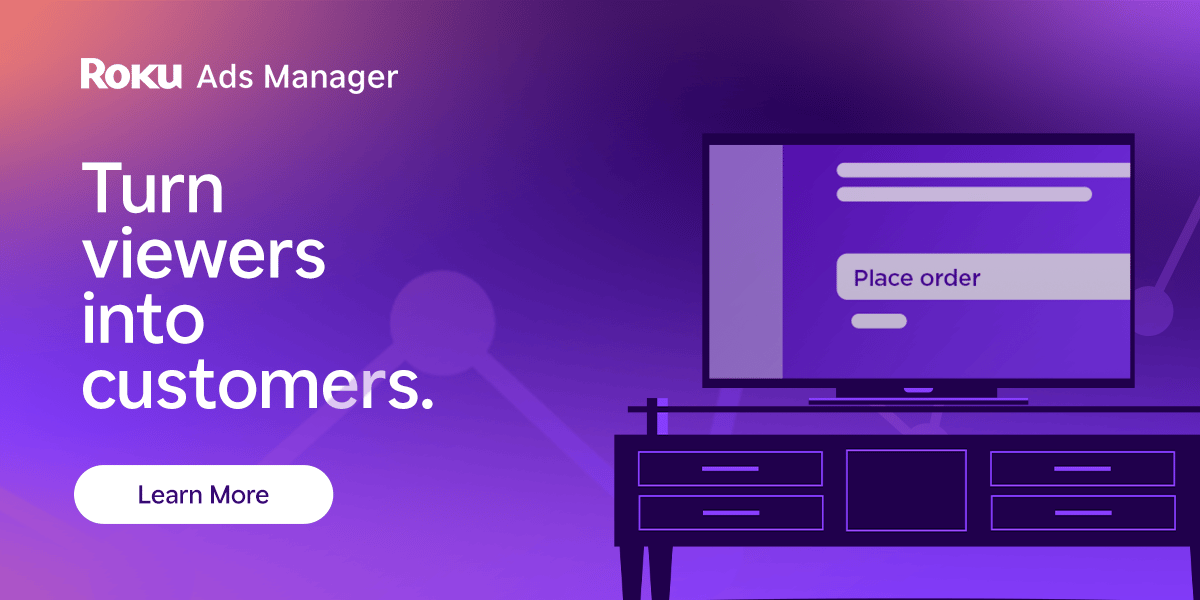{{rh_onboarding_line}}
You've written "better results" seventeen times this week. So has everyone else. Generic promises blend into feeds. Specific claims stop thumbs mid-scroll.
This Saturday, you're not just sharpening copy, you're learning why vague marketing is the most expensive mistake you can make.
More than 44,000 AI marketers are reading AIM this Saturday!
Mission Objective
Goal: Transform 5 vague marketing claims into forensically specific ones.
Time: 10 minutes.
Difficulty: ⭐⭐⭐ Medium (requires honesty about your product).
Outcome: Copy that makes readers think "this is for me" instead of "this is marketing".
In Partnership With Roku: Find Customers on this Black Friday.
Shoppers are adding to cart for the holidays
Over the next year, Roku predicts that 100% of the streaming audience will see ads. For growth marketers in 2026, CTV will remain an important “safe space” as AI creates widespread disruption in the search and social channels. Plus, easier access to self-serve CTV ad buying tools and targeting options will lead to a surge in locally-targeted streaming campaigns.
Read our guide to find out why growth marketers should make sure CTV is part of their 2026 media mix.
✨ Want to advertise in AIM?
Reach engaged 30k+ marketers with 80% open rates
Trusted by marketers at companies like GoDaddy, WPP Media, Sky, Adidas & more
The Play
Check the following copies. You remember seeing them a lot, don’t you? What you don’t know is where you saw them or to what brand they belonged in the first place:
"Improve your workflow."
"Get better results."
"Transform your business."
Vague copy feels safe, but safety is expensive. It costs you attention, trust, and conversions.
Specificity is the tax on standing out. This drill forces you to pay for it by making every claim defensible, memorable, and impossible to ignore.

Step-by-Step Play
Step 1: Choose 5 claims from your current marketing (website, ads, emails)
Look for phrases like "better," "faster," "improved," "easier," "powerful", these are specificity red flags.
I need to make these marketing claims specific and credible. For each claim below, ask me 3 diagnostic questions that will force me to quantify or specify the vague language. Don't suggest rewrites yet, just ask questions that expose what I'm avoiding saying clearly. My vague claims: [Paste your 5 claims]
What to expect: AI will interrogate your copy. "Better results" becomes "Better by what metric? For whom? Compared to what?" Answer honestly.
Step 3: After answering the diagnostic questions, use this follow-up:
Based on my answers, rewrite each claim with maximum specificity. Include numbers, timeframes, or concrete comparisons. If a claim can't be made specific with current data, flag it as "needs validation" and suggest what to measure.
What to expect: You'll get sharp, testable claims, and you'll see which promises you can't actually defend.
In Partnership With Synthflow: Utilize AI agents for WhatsApp Business calls.
The New Enterprise Approach to Voice AI Deployment
A practical, repeatable lifecycle for designing, testing, and scaling Voice AI. Learn how BELL helps teams deploy faster, improve call outcomes, and maintain reliability across complex operations.
Behind the Tech
LLMs excel at pattern recognition across millions of marketing examples. When you ask diagnostic questions first, you're forcing the AI to act as a strategic interviewer instead of a copywriter. It identifies the type of vagueness (unmeasured benefit vs. unspecified audience vs. missing timeframe) before solving it.
This two-step process mirrors how senior strategists work: diagnose, then prescribe.
Field Tip
Specificity isn't about sounding technical; it's about making your claim falsifiable.
If a competitor could copy your exact sentence without lying, it's too vague.
"Increase productivity.” → Anyone can claim that.
"Cut meeting time by 40% in 2 weeks." → Now you're accountable, differentiated, and believable.
Prompt Playground
Once you've mastered basic specificity, try these variations:
The Comparison Test:
Take this specific claim: [your rewrite]. Now make it even more specific by adding a concrete comparison or analogy that visualizes the benefit.
The Receipts Challenge:
I want to make this claim: [your most ambitious promise]. What proof would I need to back this up? List types of evidence in order of credibility.
The Constraint Flip:
Rewrite this claim with maximum specificity using exactly 7 words. No more, no less.
The Skeptic Filter:
I'm a cynical buyer reading this claim: [your rewrite]. What's my first objection? How do I make the claim even more specific to preempt that?
Challenge Within the Challenge
After you've made your claims specific, run them through the "Grandma Test."
Would my 70-year-old grandmother understand what I'm promising and how to verify it?"
If the answer is no, you're still hiding behind jargon or abstraction.
Real specificity speaks plainly.
Playbook Debrief
Vague marketing costs you twice: once in attention (you blend in), and again in trust (you sound like everyone else).
Specificity is risky because it's falsifiable, which is exactly why it works.
The best copy makes promises so specific that readers can fact-check them. That's not a bug, it's the entire point.
👋 Subscribe to Our Newsletter
Subscribe to get your weekly winning guides on AI Marketing.
Questions? Just write a comment below. I read all the comments and respond to them.



